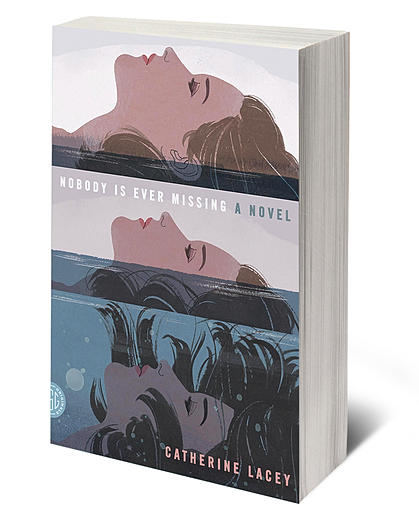My flash fiction piece "11-6" was just published by Heartwood Literary Magazine at the Low-Residency MFA at West Virginia Wesleyan College. I feel like I've written 4 or 5 pieces that all spin out of visiting the Big Bang Theory set, and you can't really tell it from the piece, but I think this is one of them. It's definitely about moving places with only a modicum of confidence (and slightly more divine faith, but not much) and having your life revolve around your job.
Here's how it starts.
Monday, October 23, 2017
The News Anchor Dreams (a short story)
Labels: airports, big bang theory, mfa, moving, short stories, storytelling, television
Posted by matthue at 10:36 PM 0 comments
Tuesday, January 17, 2017
Make Your Story Make You Bleed
Labels: harry potter, mfa, stories, storytelling, writing
Posted by matthue at 12:54 PM 2 comments
Thursday, September 4, 2014
Here's Your Next Reading List (or mine)
Just finished with my writers' group, a collection -- a straining? -- from my master's program. I think when we all decided to meet up, it seemed like an excuse for a reunion (and to drink). Turns out, it's more of a working night. We workshop two stories, and we go pretty hardcore. The way I know it's going well is, I learn more and get more out of the workshops where other people's stories are being workshopped than the ones where mine are put under the spotlight.
Anyway, we've been coming up with cool interstitial activities to do between workshops. Tonight, our assignment was to talk about whatever we're reading. Here's what people said. I'm mostly writing this because I feel psyched and energized and I want to read all these books. Enclosing links, mostly to the Brooklyn Public Library, so hopefully at least I use them, and you can too. I'll let you know how it goes. I hope you'll let me know, too.

Nobody Is Ever Missing, Catherine Lacey (recommended by Elisia). Elisia knew her years ago, when she was trying to sell her first novel. It never sold. This is her second, and it is apparently all over the place. It's a great story (she read us the first bit), and it's great to keep in mind when you think that you're never going to get anywhere as a writer.
Cosmos, Witold Gombrowicz (Laura). Long sentences, a crazy meandering plot, purely beautiful writing. Laura tried to make this a beach read and it was so not beach reading, but it was amazing anyway.
Story of a New Name, Elena Ferrante (Ben). Really beautiful quiet moments, mundane, but with surprising moments of violence.
(By the way, I should mention that the six of us destroyed four bottles of wine, so if there are details that I'm messing up, it is my fault alone, and not the fault of the recommender.)
My Struggle by Karl Knausgaard (Marc's reading it). It's named after Mein Kampf. Messed up? Yeah. It focuses on mundane, trivial moments and really blows them into microscopic thinking. Apparently a lot of men are reading this and really digging it. "It's about a guy who wants to be a writer, but can't because he has to raise a kid," explained someone. "What the fuck is the big deal?" I said. "You squeeze it in. You make it work. How do you think people have been doing it for the past thousands of years?" Yeah, Knausgaard. I'm on kid #3. I'm probably messing it up bigtime, but that's life.
Plainwater, by Anne Carson (Caitlin). "I like reading poetry before bed. It resets the rhythm of my brain."
Interlude: Someone tells the rest of us about an 11-year-old whose father is reading Infinite Jest to him and they're recreating it in Lego.
Skippy Dies, by Paul Murray (Caitlin). "You must read this," she told me. I am still not sure why, although the title, and the fact that it's a 3-volume book, have intrigued me for a while.
Oh! And here are mine:
Cujo by Stephen King. In his brilliant (!) book on writing, he says this is the book he can't remember writing. For me, it's seamless. Not just metaphorically but literally: it doesn't have chapter breaks. It's a moment-by-moment, play-by-play story. He commits so fully to the conceit of the book, the situation of the characters and the moment that all the stuff is happening.
And the books I'm actually reading:
The Lion, the Witch and the Wardrobe by C.S. Lewis. I know that it's actually an allegory for Christianity -- thank you, o eleventh-grade Christian fundamentalist girl who I had a massive crush on, for pointing that out. But it's such a good story. And so purely good. I should probably write a Kveller post about my intellectual conflictedness on this issue. But as a storyteller, I could not get behind this more.
Colorless Tsukuru Tazaki and His Years of Pilgrimage, by Haruki Murakami. It's not my favorite of his, but after 50 pages of goodness-but-not-blow-away-ness, there was a moment where the emotional force of the story pummeled its way through -- it's about a guy who's always been part of a group of friends, and suddenly, for no reason he can discern, they kick him out -- and hit me squarely in the gut. And then it keeps hitting. It's not the best book ever, and there are lines that would totally embarrass me if I were Murakami (especially that one about "Tsukuru Tazaki's life was changed forever, as if a sheer ridge had divided the original vegetation into two distinct biomes") but it's a really solidly good book.
I included everyone's names as a way of sort of quoting/attributing to them. Hope it's okay.
Labels: books, brooklyn college, c.s. lewis, haruki murakami, libraries, mfa, stephen king
Posted by matthue at 11:45 PM 2 comments

















